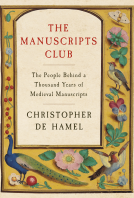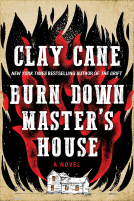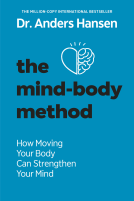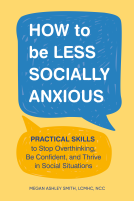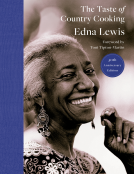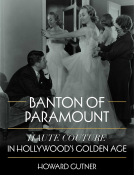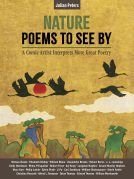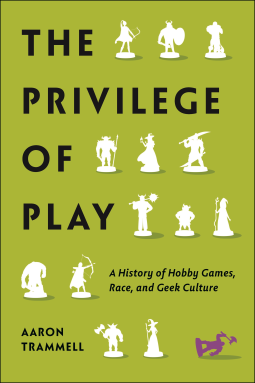
The Privilege of Play
A History of Hobby Games, Race, and Geek Culture
by Aaron Trammell
This title was previously available on NetGalley and is now archived.
Send NetGalley books directly to your Kindle or Kindle app
1
To read on a Kindle or Kindle app, please add kindle@netgalley.com as an approved email address to receive files in your Amazon account. Click here for step-by-step instructions.
2
Also find your Kindle email address within your Amazon account, and enter it here.
Pub Date Apr 18 2023 | Archive Date May 30 2023
Talking about this book? Use #ThePrivilegeofPlay #NetGalley. More hashtag tips!
Description
The story of white masculinity in geek culture through a history of hobby gaming
Geek culture has never been more mainstream than it is now, with the ever-increasing popularity of events like Comic Con, transmedia franchising of the Marvel Cinematic Universe, market dominance of video and computer games, and the resurgence of board games such as Settlers of Catan and role-playing games like Dungeons & Dragons. Yet even while the comic book and hobby shops where the above are consumed today are seeing an influx of BIPOC gamers, they remain overwhelmingly white, male, and heterosexual.
The Privilege of Play contends that in order to understand geek identity’s exclusionary tendencies, we need to know the history of the overwhelmingly white communities of tabletop gaming hobbyists that preceded it. It begins by looking at how the privileged networks of model railroad hobbyists in the early twentieth century laid a cultural foundation for the scenes that would grow up around war games, role-playing games, and board games in the decades ahead. These early networks of hobbyists were able to thrive because of how their leisure interests and professional ambitions overlapped. Yet despite the personal and professional strides made by individuals in these networks, the networks themselves remained cloistered and homogeneous—the secret playgrounds of white men.
Aaron Trammell catalogs how gaming clubs composed of lonely white men living in segregated suburbia in the sixties, seventies and eighties developed strong networks through hobbyist publications and eventually broke into the mainstream. He shows us how early hobbyists considered themselves outsiders, and how the denial of white male privilege they established continues to define the socio-technical space of geek culture today. By considering the historical role of hobbyists in the development of computer technology, game design, and popular media, The Privilege of Play charts a path toward understanding the deeply rooted structural obstacles that have stymied a more inclusive community. The Privilege of Play concludes by considering how digital technology has created the conditions for a new and more diverse generation of geeks to take center stage.
Available Editions
| EDITION | Other Format |
| ISBN | 9781479818402 |
| PRICE | $32.00 (USD) |
| PAGES | 240 |
Available on NetGalley
Average rating from 12 members
Featured Reviews
 Reviewer 1089643
Reviewer 1089643
A searing reflection on and deconstruction of how privilege has operated within the histories of hobbyist culture and tabletop play.
"The third wave is political ... third-wave game studies scholars now wear their politics on their sleeves."
We are entering a new era in game studies, and perhaps technology and culture studies more broadly. Politics is centred, identities and positionalities are entering academic discussions and being formalized in papers, and social constructivism is no longer marginalized. Even those of us without humanistic, philosophical, and/or activist backgrounds are embracing this oncoming "third wave," norming it in our practice.
"Geeks see themselves as outsiders because they have been empowered by white privilege yet feel excluded from the domain of hegemonic masculinity to which they feel entitled."
Trammell traces out a history of modern non-digital play arenas, focusing on technical hobbies, tabletop role-playing games, and board games. The novel point is a concerted and critical focus on how privilege set the stage and continues to shape these spaces. Trammell helps the reader understand how power, discrimination, and intersectional factors drove and continue to influence these trailblazing and contemporary geek communities. Specifically, Trammell casts this history as one premised in white supremacy and hegemonic masculinity.
"Hobbyists have been reluctant to embrace racially subversive and racially progressive narratives simply because they view the stories they are already telling as transformative."
Trammell writes with the ease of a humanist, and a non-academic reader can easily follow most of the discourse. Most academese (I'm side-eyeing "discursivity" and "speleology") and special terms are defined and used sparingly ... and there's some geekspeak thrown in, too, like "grok." The edition I read still needs copy-editing. A lot of terms and concepts are introduced and then re-introduced as if they had never been introduced in the first place, e.g., geek masculinity, BoardGameGeek's financial model, etc. Trammell has a habit of repeating words in the same sentence while referring to different things, e.g., "today ... today" and "conversation ... conversation." Also, Trammell, like many academics trained or attempting to be objective, attributes agency to the text rather than the author, e.g., "the chapter examines" (no, YOU examine), which is a long-standing annoyance of mine, especially when it crops up in otherwise subjective texts written in the first person.
"Hegemonic masculinity is the structure that uplifts the patriarchy, whereas toxic masculinity is antisocial behaviour, including misogyny, threats, abuse, and violent action."
I'm also not on board with some term definitions, e.g., simulation as prediction, and suggested terms, e.g., simulationism as revisionism. Simulation can mean creation, experimentation, imitation, etc. If the goal of the new term is to highlight how games and other simulations allow for revisionist play of past events, especially in the service of non-neutral and ethically despicable historical corrections, why not a term like "contra-simulation"? I feel like these ideas could be uplifted by further peer review before they are cemented in a popular text.
"A history of hobby gaming connects game studies' concern with lived gamer identities to concepts of whiteness and masculinity. The history of the hobby, then, explains why games came to be seen as 'apolitical' in the eyes of white male players who have historically constituted the scene. ... This privilege ... is to abstain from political discussion."
One highlight is the writing-in of histories that have been sidelined or ignored. Trammell rightly calls out the factors that coalesced around white boys and men leading the way and maintaining these arenas while keeping everyone else out. Trammell persuasively links access to electricity and higher education to white flight and segregation of cities, and it is both striking and damning. Trammell also makes the case for the presence of diversity, such as early Black participants in the hobby, and centres early women players, especially Lee Gold, who are treated as nonentities by so-called progressive media journalists and historians even today (here's looking at you, WIRED).
Yet, Trammell does overstate claims, leaves big ideas unpacked, and leans too hard on too little evidence. For example, I'm not sure how nudging white hobbyists to feel superior to the masses by using a silly white mob going after fake bills "encouraged them to flirt with white supremacy." This is puzzling to me, because at around 180 pages, there is room to go into depth and detail and bring in more examples. This leaves the reader uneasy, at best. In another example, Trammell argues that the Damsel and Courtesan character classes are sufficient "circumstantial" evidence for the decrease in women contributors to the Alarums and Excursions 'zine. I’m sympathetic to the close reading here but I think this claim goes beyond its bounds.
Trammell is also at times inconsistent in the "who" of the thesis. In one breath, we have race, people of color (PoC), BIPOC ... and in the other, only Black people. About the same topic. Including Nazis, e.g., a topic where there is a centred racial category, i.e., Jewish people. Why the inconsistency? I think this is a failure of reflexivity, where Trammell has accidentally fallen back on the defaults of his own positionality without realizing it. I hope an editor or peer reviewer will help the author correct this throughout. The subtitle is also telling (and misleading), since this is not just about race but also gender (and other things).
Relatedly, I'm not sure that the framing is well-summarized as "white male privilege." This is correct but insufficient, even based on the material in this text. Class and economic status play a huge role, according to the author, who references neoliberalism and libertarianism ... well, liberally. I'm also a bit disappointed that Trammell didn't bring in more of a queer perspective on the case of the D&D "love not war" character classes, especially given source material references (including slurs) about homosexuality and lesbianism. For example, these views also erase the existence of trans* and intersex folk as well as restrict sexuality to the binary of hetero vs. homo (even if gendered). All of these are tied up in white male hegemonic masculinity, so I would have loved for this gap to be called out and deconstructed.
“People of color shoulder the burden of embodying diversity, doing the work that others should. An individualistic perspectives naïvely neglects the power of networks, ideas, and labor involved in producing hobby games.”
Despite my criticism, this text is a necessary and welcome first step towards reframing and critically reflecting on geek culture within gaming, in the past and the present, in arenas virtual and beyond the computer-mediated. I look forward to what the author writes about next. Perhaps how the new generation has entered and reclaimed these spaces?
Readers of the ebook, watch out: The map visualizations don't render properly in B&W. I assume important information presented in colour was lost in the grayscaling process.
 Media/Journalist 16509
Media/Journalist 16509
This is quite an academic and intellectual book that does a deep dive into the history of white men and their ownership of geek culture. Highly recommended for those who feel like outsiders in a culture that has created its identity on being privileged (whether they acknowledge it or not) outsiders themselves.
Readers who liked this book also liked:
L.M Montgomery
Children's Fiction, Comics, Graphic Novels, Manga, Teens & YA
Megan Ashley Smith, LCMHC, NCC
Health, Mind & Body, Nonfiction (Adult), Self-Help
